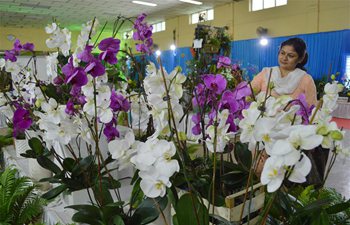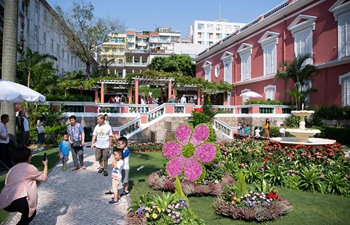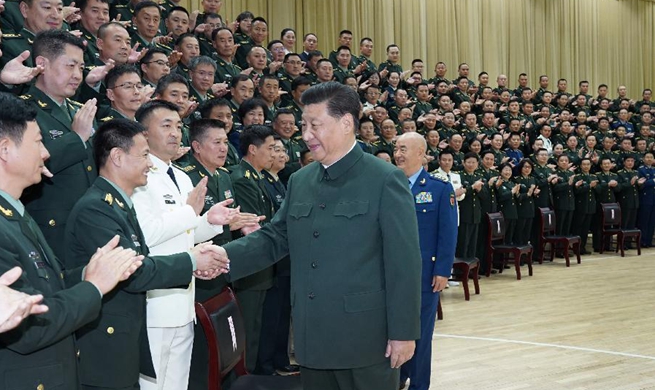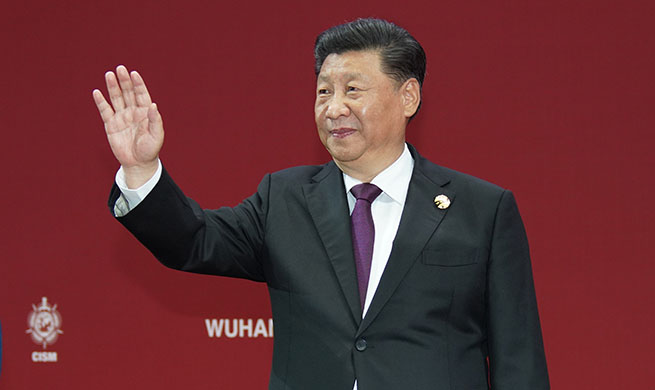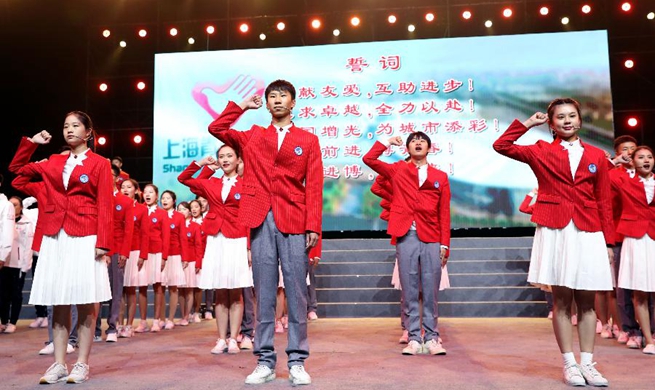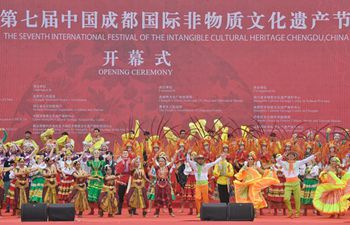BEIJING, Oct. 20 (Xinhua) -- When David Kolosov first opened the Chinese-Russian dictionary on his grandfather's bookshelf in 2003, the 10-year-old Russian boy got his first taste of a brand new Chinese world.
"Do Chinese people really know so many characters?" David wondered, overwhelmed and captivated by the 50,000-character dictionary and the mysterious culture behind it.
Now, after spending eight years in China, David holds a bachelor's degree in Chinese literature and is studying for a master's at the prestigious Tsinghua University.
As the winner of the "Chinese Bridge" Chinese proficiency competition in 2014, David has starred in multiple Chinese reality shows and has over 1 million followers on Chinese social networking platform Weibo.
The year 2019 marks the 70th anniversary of the establishment of diplomatic relations between China and Russia. As their comprehensive strategic partnership of coordination entered a new era, the two countries have seen increasingly vibrant people-to-people exchanges.
In 2018, over 19,000 Russian students were studying at Chinese universities, according to statistics from China's Ministry of Education. Outside classrooms, they are also becoming more engaged in Chinese cultural life and facilitating bilateral ties.
Ksenia Lozovskaya, a 32-year-old PhD candidate at Beijing's Renmin University of China, is more proud of her other identity -- a veteran Taichi practitioner. Almost every week, she practices Taichi with her Chinese master in Tiantan (Temple of Heaven) Park.
"Taichi teaches me the wisdom of 'no hurry' and patience," Lozovskaya said. She also recommends Taichi and Chinese tea to her family and friends.
A former teacher at the Confucius Institute of Ural Federal University in the Russian city of Yekaterinburg, Lozovskaya sometimes works as a part-time interpreter in China, making contributions to cultural communications between the two countries.
Lozovskaya just joined the Russian Student Association (RSA), an organization for Russian students in Chinese universities, which David helped build.
"Our goal is to help Russian students get accustomed to life in China and learn more about Chinese culture," said Sokolova Polina, chairman of the RSA's Beijing branch, which has nearly 60 key members. The RSA also has branches in many Chinese cities including Shanghai, Harbin and Shenyang.
Mandarin Chinese was added as an elective foreign language in Russia's college entrance exam earlier this year. The two countries also agreed to expand cooperation in the area of education in September.
"The closer relations between the two countries will bring more opportunities for Russian students to learn Chinese," said Polina. "I'm delighted to see it."







